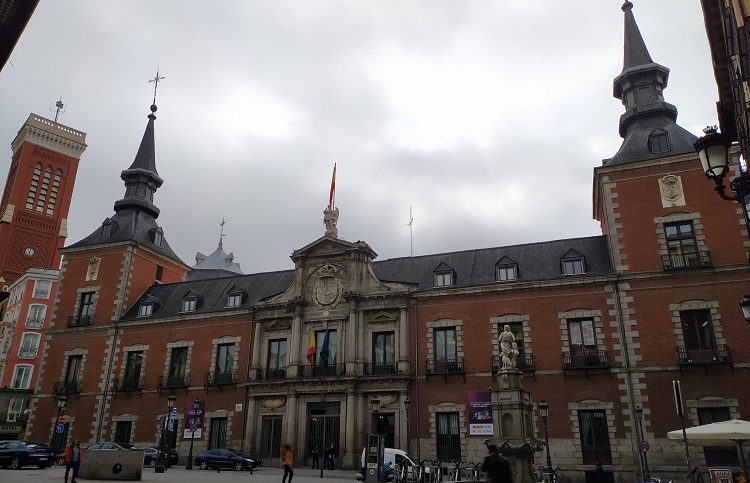Roberto Veiga González 
Lawyer and political scientist / Collaborator of Fundación Alternativas
Cuba’s development will depend to a great extent on its insertion in the world, which would require an international relations strategy that defends the country’s interests and not exclusively those of the Communist Party.
There are conditions that could help it. Cuba is an archipelago in the Caribbean, of Hispanic, American and African heritage, with a transnational society, capable of generating significant political, economic, cultural and family ties with the United States, Europe, Latin America and Africa. This could be a capital asset in favor of the broadest and most intense international relations possible -especially economic-, for example, with the international financial institutions, the United States, Canada, China, Russia, India, the European Union, the United Kingdom, Japan and at least the five most important countries in Latin America: Brazil, Argentina, Colombia, Chile and Mexico.
At the same time, it is necessary to consider that the development of such international relations requires a pragmatic link between Cuba and the United States, with all the risks involved, given the enormous asymmetry between the two countries. However, this would require the utmost political maturity and to do so as part of Latin America and the Caribbean.
However, Cuba has very unfavorable internal conditions, which demand this development of international relations, but at the same time hinders them. A solid policy would be necessary on the island, capable of taking on the challenges of a growing general poverty. In Cuba, a very large percentage of the elderly population is in hardship; corruption, violence and criminality are increasing; there is no economic model, nor finances, nor infrastructure, nor technology, nor an adequate energy system, nor basic foodstuffs, nor other primary needs; nor is there a skilled labor force, since the population with labor capacity emigrates en masse, leaving only the elderly poor and alone, and few sectors capable of creating wealth. There is also a polarized and trivialized national political context.
In turn, the power in the island squandered all the opportunities, while it possessed better conditions, to transform the socio-political model by transferring authority and legitimacy to the institutions, to the positions responsible for them and to a democratic social dynamic. As a consequence, it currently lacks conditions that offer certainties, has an inefficient system and lacks clarity on a possible strategic agenda that could lead the country out of the crisis, without putting at risk the security of the political elite and its economic interests, control, etc.
At the same time, although the political conflict between the powers of the United States and Cuba is not the “efficient cause” of the crisis, it would be wrong to ignore how much that conflict affects society and, especially, the most needy, and that it is sustained by a “castling” that makes the solution to the Cuban crisis also pass through the normalization of bilateral ties. But, unfortunately, there is little interest for this in the U.S. establishment, which is risky because it is misleading to imagine that the United States should not initiate an opening towards Cuba until the island occupies a significant place in the world’s democratic standards, since any solution would be difficult without the benefits of a positive bilateral relationship.
Currently, with the arrival of Donald Trump to the White House, it may be more difficult to move forward, although perhaps not impossible. Perhaps the President-elect of the United States will maintain a confrontational praxis towards Cuba and, at the same time, will be willing to negotiate.
In 2017, after announcing the confrontation with the Cuban Government, he sent to Havana the message that he could vary that position if the latter fully allowed private enterprise, extended internet service to society and incorporated the real election of deputies from some mode of nomination that the Cuban power could accept. But Havana did not heed this request.
Now, according to public statements by his team, Trump would again offer something similar, although on this occasion with the following demands: unconditional release of political prisoners, holding of democratic elections and abandonment of the pretension of influencing the policy of Latin American countries. Therefore, perhaps it is in the hands of the Cuban government to encourage the White House to decide between confrontation and negotiation.
Then, foreign policy would have to be at the service of national challenges, but this would be difficult if Havana postpones the negotiation of confiscations from Americans and Cubans -in many cases already emigrated- as well as financial debts with the Paris Club, the London Club, Russia and other public and private bilaterals.
Cuba would also have to participate in the stability and development of the hemisphere, without which it would be irrelevant to other surrounding countries. It could initiate this, for example, through Cuban ports, nickel, cobalt, tourism, and an agriculture that will have to recover, its experience in responding to natural, health, human and other catastrophes, as well as contributing to the mechanisms for the fight against organized crime in the world and the hemisphere, and with the development of relations with the immediate space, the Caribbean, in which cooperation prevails.
At the same time, the synergies derived from this should contribute to restore the Cuban infrastructure: the road system, the energy industry, the passenger and commercial railroad, passenger and commercial aeronautics, internet and telephone communication and transportation, etcetera.
Cuba will not be able to ensure the solution of the current crisis without the participation of the world and the hemisphere, being part of Latin America. But these will not be available if it fails to offer at least a solid political climate of normalization and a mature development strategy and the capacity to manage it.
© Fundación Alternativas






